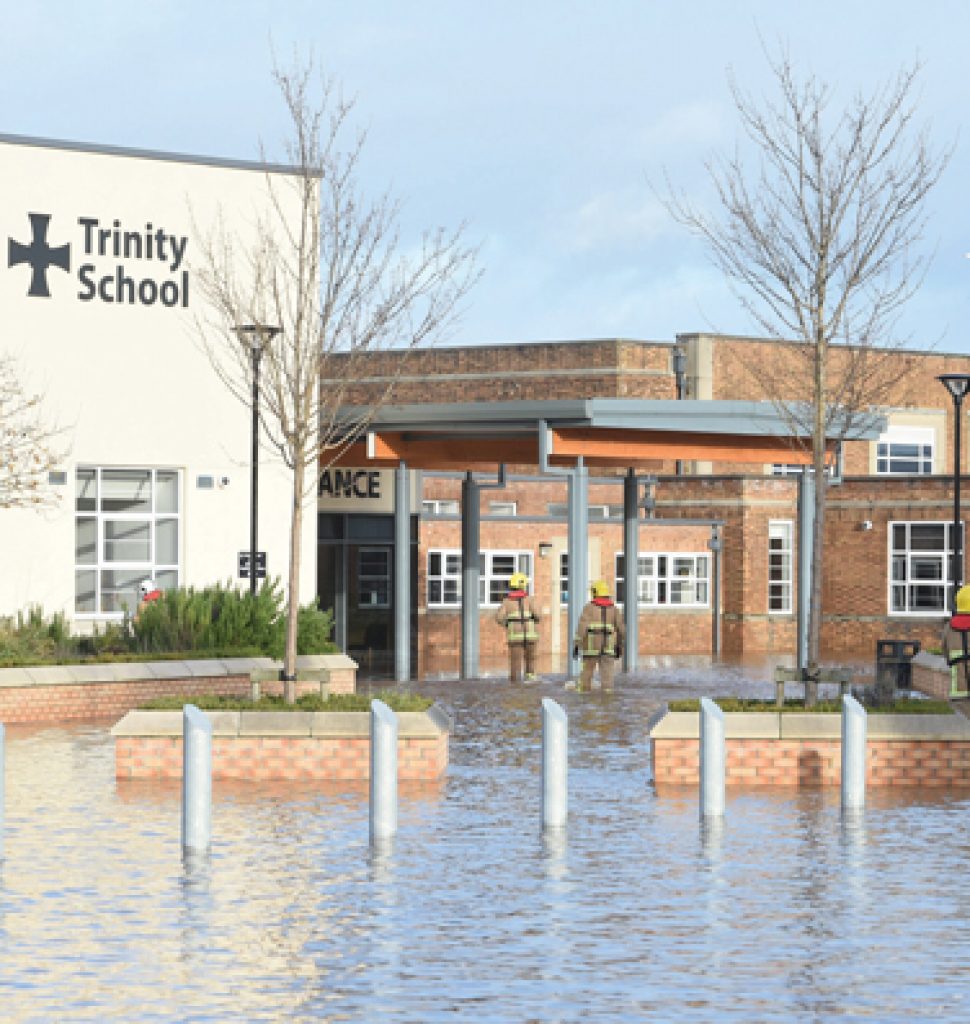The number of schools at ‘significant flood risk’ is set to increase by more than a third to almost 15,000 by 2050 due to ‘anticipated climate change’, the government has warned.
The Department for Education today released its Sustainability and Climate Change draft strategy which includes a raft of policies to make the sector “world-leading” by 2030 (you can read all 29 new ones here).
That includes mandating all suppliers bidding for £5m-plus contracts from the DfE and its arms-length bodies have a plan to achieve ‘net zero’ by 2050.
4,000 more schools at flood risk
The document sets out the risk many schools already face. The Government Climate Change Risk Assessment states 10,700 schools, almost half, are at “significant flood risk”.
“This is expected to increase by a further 4,000 by 2050, based on anticipated climate change”, the strategy adds.
Schools Week previously revealed schools which had missed out on the government’s rebuilding programme were prone to flooding, had leaking roofs and faulty heating systems.
In 2015, schools in Cumbria faced weeks of closures and extensive clean-up operations after storms caused significant flooding to 36 schools.

All schools to have emergency plans by 2025
The strategy promises “urgent and ambitious action” to adapt the education estate with investment being made in the three highest areas of risk; increased heat risk, flood risk and water scarcity.
Government will “implement climate adaptation measures in schools” such as flood resilience, heat resilience and fixing water leaks, the document says.
By 2023, the department will “deliver locally-tailored presentations” to improve learning and awareness of flood risk and resilience in schools in partnership with the Environment Agency and Geographical Association.
Work with the Environment Agency, water companies and local authorities to reduce flood risk at schools will also be developed.
By 2025, all education settings will be encouraged to “sign up to available weather/flood warnings and have emergency plans in place”.
The DfE will also work with schools to “put in place Climate Action Plans to increase sustainability literacy and inform government on the implementation of nature based solutions to alleviate flood risk, provide solar energy and improve air quality”.
The government will support the implementation of these action plans by 2030.
It also pledges to build all schools to be net zero in operation and support the reduction of emissions.
Schools alone spend £630 million each year on energy. Schools and universities account for 36% of the total UK public sector building emissions.
Teach kids about climate change (but don’t encourage protests)
Another key area of focus will be ‘climate education’. The strategy states that “a better understanding of facts … will empower all young people”.
The strategy explains that “teaching about climate change and the scientific facts and evidence behind this, does not constitute teaching about a political issue”.

Schools do not need to present misinformation “to provide balance”, it adds.
However, any “relevant political issues and partisan political views … should be handled in line with schools legal duties on political impartiality”.
While schools should support pupil’s interests in climate change, “it would not be appropriate to encourage pupils to join specific campaigning groups or engage in specific political activity, such as protests”, the DfE said.
Elsewhere the DfE pledged that the department and its arms-length bodies “will mandate that all suppliers bidding for contracts over £5m per year, commit to achieving Net Zero by 2050”.
Potential suppliers must publish a ‘carbon reduction plan’ to “clearly show how they will meet this target”.














Your thoughts